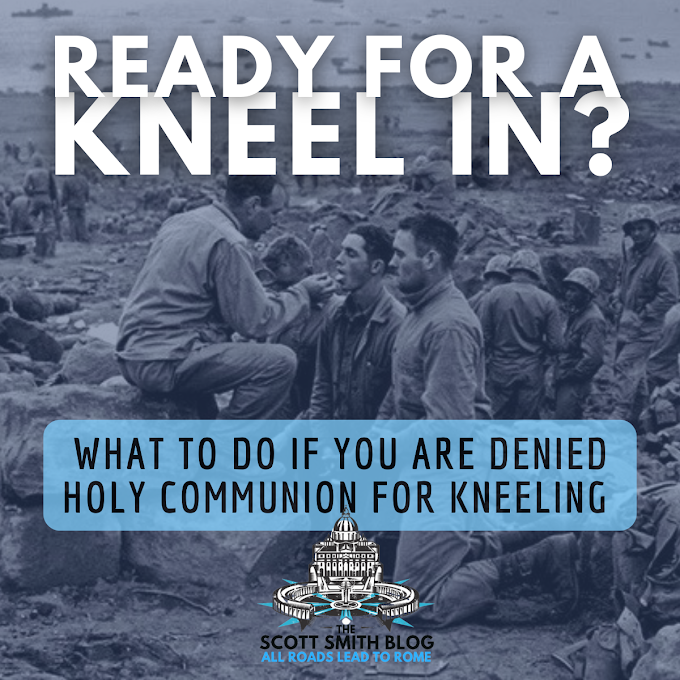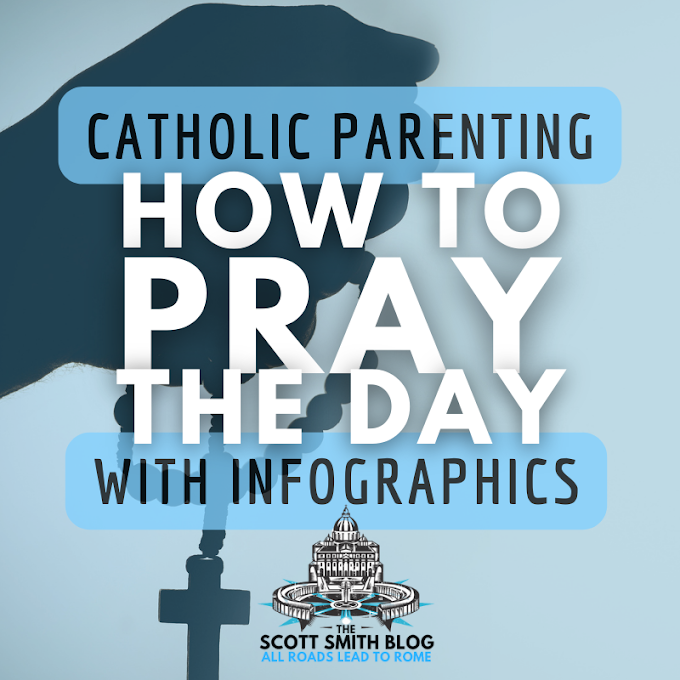How does a man become a Saint? It is often by the example of other saints, a man's teachers and great friends.
This is especially true of Pope St. John Paul II. Growing up in Poland, so many of his friends and teachers were martyred. First at the hands of the Nazis, then at the hands the Communists.
One of the greatest men in the life of Pope St. John Paul II was his teacher, Adam Stefan Cardinal Sapieha.
St. John Paul II said the following of this great man:
He was a great son of his homeland; resolute in difficult moments, brave beyond the measure of mediocrity, an extraordinary son of his homeland, an extraordinary man of history and Poland
- 1976 statement of former student Karol Wojtyła, then Archbishop of Krakow, subsequently Pope St. John Paul II
I hope you enjoy the following guest post by acclaimed writer Brian J. Costello, KHS, OT, CLJ.
Together, we wrote the following collection of biographies of "Blesseds" including Carlo Acutis and Father Seelos:
Also, if you love Pope St. John Paul II and want to learn from him "how to pray the Rosary", I have compiled the following book of JP2's contemplations of the mysteries of the Rosary:
Cardinal Sapieha: HOLY MAN OF ROYAL LINEAGE
Born May 14, 1867 at Krasiczyn - into a family renowned for its commitment to God, Church, country, education, philanthropy, and each other - Prince Adam Stefan Stanisław Bonifacy Józef (ultimately Cardinal) Sapieha, was the seventh and youngest child of Prince Adam Stanisław Sapieha and Princess Jadwiga Klementyna, née Sanguszko.
Sapieha's forebears included in addition to the Houses of Sapieha and Sanguszko, the Czartoryski, Zamoyski, Potockti, Jablonowski, and Sosnowski, all prominent in Polish history and culture.
 |
| Cardinal Sapieha as a young boy |
Adam Stefan Sapieha studied law at the Jagiellonian University in Krakow and the University of Vienna, and theology in Innsbruck. Meanwhile, in 1893, he was ordained a priest by Bishop Jan Puzyna, Suffragan of Lviv.
Rev. Sapieha’s assignments and further education included the vicarate of Jazłowiec; doctoral studies at the Lateran University and education in the field of diplomacy at the Pontifical Noble Academy, both in Rome; priest of the Archdiocese of Lviv; deputy director of the Metropolitan Seminary; capitular canon of Lviv; representative for Poles under the Partitions; chamberlain of Pope Pius X; and Bishop of Krakow (appointed 1911).
Notable for his time, Fr. Sapieha was a champion of mutually-enriching pastoral and parishioner relationships, close access for the faithful to the clergy, and subdividing large parishes into smaller ones to achieve these goals. To that end, he created some 63 parishes.
 |
| Prince Roman Sanguszko, Father Adam Stefan Sapieha, Parish Priest Gromadzki, Paweł Sapieha, and Janina Rzyszczewska in Sławuta, 1910. |
Cardinal Sapieha: FIRST WORLD WAR
With Poland ransacked as chief theatre of the Eastern Front of the First World War, Bishop Sapieha early on coordinated aid to the suffering populace, distributed through the Prince-Bishop’s Committee. This assistance included vaccination of and spiritual comfort to the impoverished of Galicia and Krakow by two “columns” of traveling doctors, nurses, sanitary workers, and priests. He was specific that aid be provided the poor Jewish residents of the Kazimierz.
Simultaneously, Bishop Sapieha headed fundraising campaigns, contributing his own resources, and supporting religious congregations which provided aid.
Following World War I, Sapieha established a children's hospital in Zakopane-Bystre and a hospital for trachoma patients in Witkowice.
Cardinal Sapieha: INTERWAR WORK
With the regaining of Polish independence, Bishop Adam Stefan Sapieha - son and grandson of celebrated patriots – admonished: "The present moment [is] given to us by God in order to build the edifice of our Homeland in it. We must not waste this moment; we are responsible for it before God."
He served as senator during 1922-1923, representing the Christian Union of National Unity.
With the establishment of the metropolis in Krakow, in 1925 Adam Sapieha was elevated to the dignity of the Archbishop, Metropolitan of Krakow.
In the interwar period, Archbishop Sapieha organized Caritas and Catholic Action for the Archdiocese of Krakow, the Bishop’s Rescue Committee for Help to the Poor, the Aid Committee for the Unemployed, and the Catholic Scientific Institute.
 |
| December 1936: A fundraiser in Krakow to help the unemployed (under the banner of Santa Claus for unemployed children). Archbishop Metropolitan of Krakow Adam Sapieha (Photo: National Digital Archives) |
He supported orphanages and homes for the elderly, directed the building of 50 new churches in the Archdiocese, established the Artistic and Advisory Committee for the Restoration of the Wawel Cathedral, and protested the imprisonment of “political” prisoners during these years.
Biographer Dr. Jacek Czajowski said Sapieha “frequently appealed to the rich not to forget about the poor. At the same time, he was relatively conservative; he condemned the class-struggle theory, advocating social solidarity in its stead.”
Citing Czajowski, biographer Adam A. Hetnal wrote of Sapieha: “On occasions…he could be quick-tempered, ready to reprove and proverbially stubborn, a feature inherited from his Sapieha ancestors,” adding more importantly, however, that he “disliked all pomp and magnificent religious services. He was reserved and self-effacing.”
Cardinal Sapieha: SECOND WORLD WAR
Upon the brutal invasion of Poland by Nazi Germany and Communist Russia in 1939, Archbishop Sapieha refused to flee Krakow and Poland. He connected with the independence underground and the Polish government in exile.
He courageously stood up to occupying Nazi authorities, and several times refused to participate in celebration of Adolph Hitler’s birthday.
Archbishop Sapieha is famously reputed to have responded to a personal invitation to honor Hitler's birthday by proffering coarse “brown” bread and water to a Nazi official, explaining that such was the fare of starving Polish families.
Throughout the terror of Third Reich rule and genocide, the Archbishop spoke out against abuse of his countrymen, both Jewish and Gentile. He commissioned the issuing of false birth certificates to Jews, showing them as Christians, in an attempt to spare their lives.
 |
| The center of the Holocaust in Poland: Auschwitz Concentration Camp |
He, meanwhile, supported the humanitarian activities of the Central Welfare Council and established the Civic Aid Committee.
With the abolition of seminary institutes, Archbishop Sapieha had instruction organized underground,
Owing to his lifetime commitment, which reached heroic heights during World War II, to assisting the poor and suffering, Adam Stefan Sapieha was given the nickname "The Great Allah."
Cardinal Sapieha: CARDINAL
Following the war, on February 18, 1946, Adam Stefan Sapieha was elevated to the College of Cardinals by Pope Pius XII. He received the cardinal's hat from the Pope five days later in the Basilica of St. Peter, and was assigned the Church of Santa Maria Nuova in the Roman Forum as a cardinal church.
After returning from the ceremonies to Krakow, Sapieha was greeted with ovation by immense throngs, who had long-waited him to to be awarded the cardinal's dignity.
Later in that eventful year, on All Saints’ Day, November 1, 1946, Cardinal Sapieha ordained to the priesthood Wadowice native Karol Wojtyła, the future Pope St. John Paul II.
Cardinal Sapieha: UNDER STALINIST RULE
During Stalinist rule of Poland, Cardinal Sapieha protested the closing of Catholic schools, suppression of Caritas, obstruction and restriction of pastoral ministry to the ill and incarcerated, abolition of the Catholic press, forced indoctrination of citizens, and defamation of the clergy and Church hierarchy. He continuously called for the release of the arrested and an end to repression.
In 1947, during growing Communist terrorism, Cardinal Sapieha declared: "I have not yielded to the Germans; all the more I will not yield now."
For his adamant attitude towards the Nazis and Communists, Cardinal Adam Sapieha was affectionately referred to as “The Unbreakable Prince.”
Naturally, the Communist Party held Cardinal Sapieha in contempt. Informants reported his activities, and his name constantly appeared as the target of secret police plots.
Cardinal Sapieha, in declining health for more than a decade but continuing a demanding schedule, suffered a heart attack in 1950. Shortly before, fearing even greater persecutions in Poland, anticipating his possible arrest, and the means by which forced “confessions” were wrought and “admissions” publicized, he wrote:
Should I be arrested, I hereby declare that all my statements, requests and admissions made therein are untrue. Even if they were given to witnesses, signed, they are not free and I do not accept them as my own.
Cardinal Sapieha: END OF EARTHLY JOURNEY, AND TRIBUTES
Cardinal Sapieha celebrated Holy Mass for the last time on April 19, 1951 and died the following July 23 in Krakow. His funeral five days later was reportedly “a manifestation of the memory and gratitude of the faithful and clergy.” He was buried in the crypt beneath the Wawel Cathedral.
Primate Stefan Wyszyński (to be beatified in 2020) eulogized Cardinal Sapieha:
He will remain among us the spirit of his deeds, because these deeds live and bring him to the face of a longing nation that craves wonderful models of life, which must have great husbands at all ages, images of a dignified life.
Pope St. John Paul II regarded Cardinal Sapieha as his authority, and during his 7th Pilgrimage to Poland, in 1999, addressed the faithful from a window of the Archbishop’s Palace in Krakow:
Here stands a statue of the Cardinal ... The Unbreakable Prince. ... And I still remember his face, his features, his words, his sayings ...
The years go on; many do not remember Prince Cardinal Adam Stefan Sapieha. Those who remember like me are obliged to remind that this greatness should last and create the future of the nation and the Church in this Polish land.
God bless you, Father Cardinal, for what you were for us, for me, for all Poles of the terrible period of the Occupation. God bless you.
Guest Author: Brian J. Costello, KHS, OT, CLJ
I hope you enjoyed the following guest post by acclaimed writer Brian J. Costello, KHS, OT, CLJ. In addition to being my good friend, Brian J. Costello is a lifelong resident of New Roads, Louisiana, USA and an 11th generation Louisianan. He is a graduate of Louisiana State University, Baton Rouge. An authority on Louisiana and European history, culture, religion and linguistics, he is, as of 2018, the sole author of 19 books and co-author of seven books, as well as numerous feature articles.
Together, we wrote the following collection of biographies of "Blesseds" including Carlo Acutis and Father Seelos:
Also, if you love Pope St. John Paul II and want to learn from him "how to pray the Rosary", I have compiled the following book of JP2's contemplations of the mysteries of the Rosary:


















0 Comments